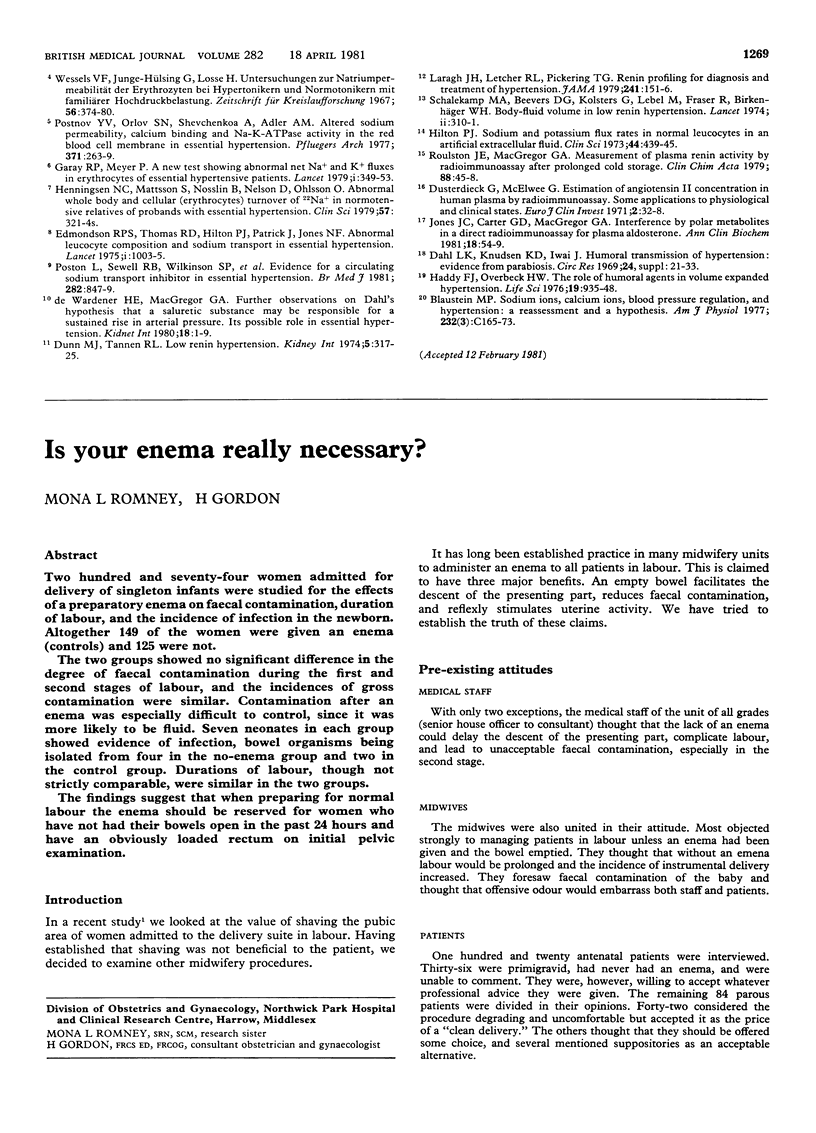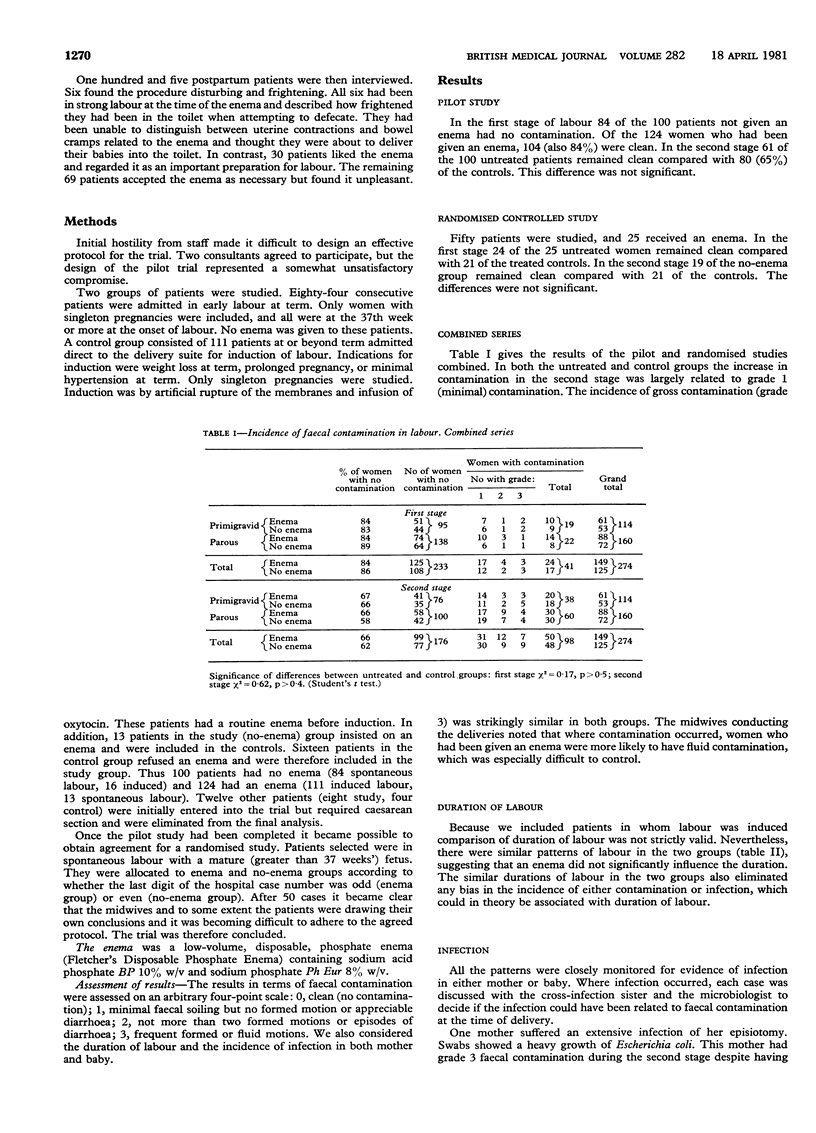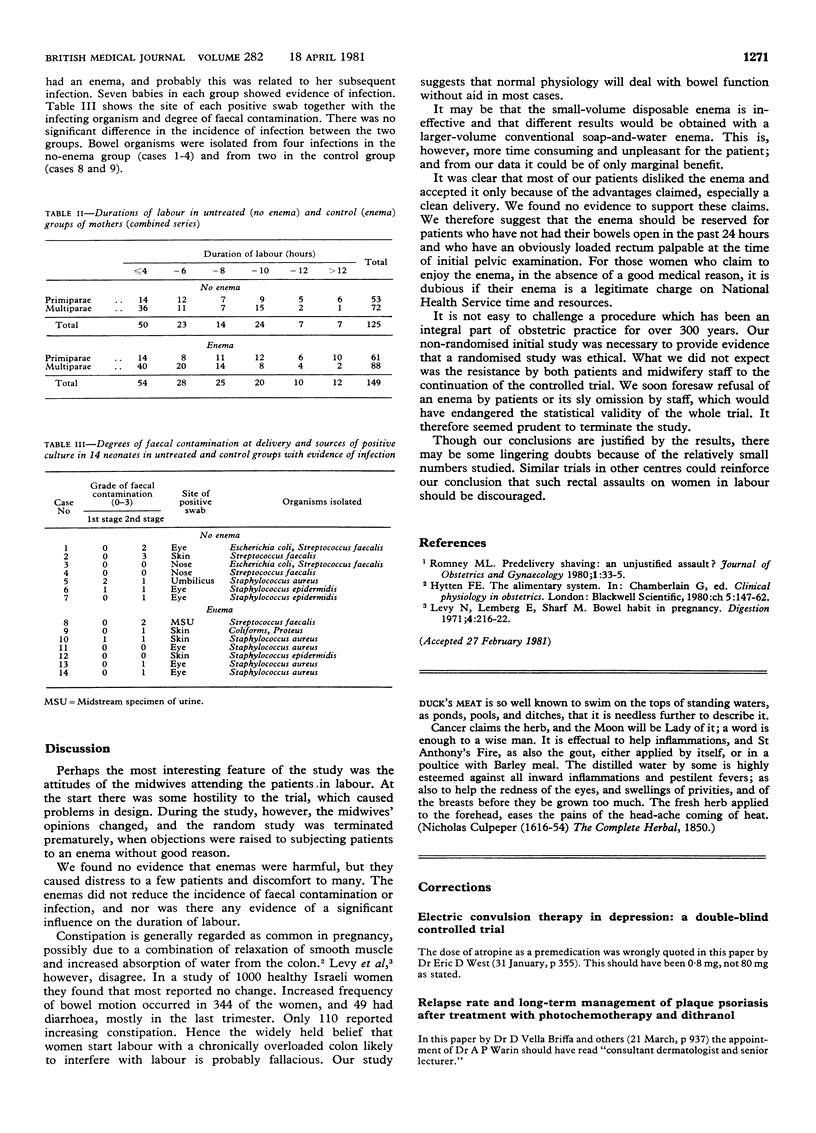Abstract
Two hundred and seventy-four women admitted for delivery of singleton infants were studied for the effects of a preparatory enema on faecal contamination, duration of labour, and the incidence of infection in the newborn. Altogether 149 of the women were given an enema (controls) and 125 were not. The two groups showed no significant difference in the degree of faecal contamination during the first and second stages of labour, and the incidences of gross contamination were similar. Contamination after an enema was especially difficult to control, since it was more likely to be fluid. Seven neonates in each group showed evidence of infection, bowel organisms being isolated from four in the no-enema group and two in the control group. Durations of labour, though not strictly comparable, were similar in the two groups. The findings suggest that when preparing for normal labour the enema should be reserved for women who have not had their bowels open in the past 24 hours and have an obviously loaded rectum on initial pelvic examination.
Full text
PDF


Selected References
These references are in PubMed. This may not be the complete list of references from this article.
- Levy N., Lemberg E., Sharf M. Bowel habit in pregnancy. Digestion. 1971;4(4):216–222. doi: 10.1159/000197122. [DOI] [PubMed] [Google Scholar]


